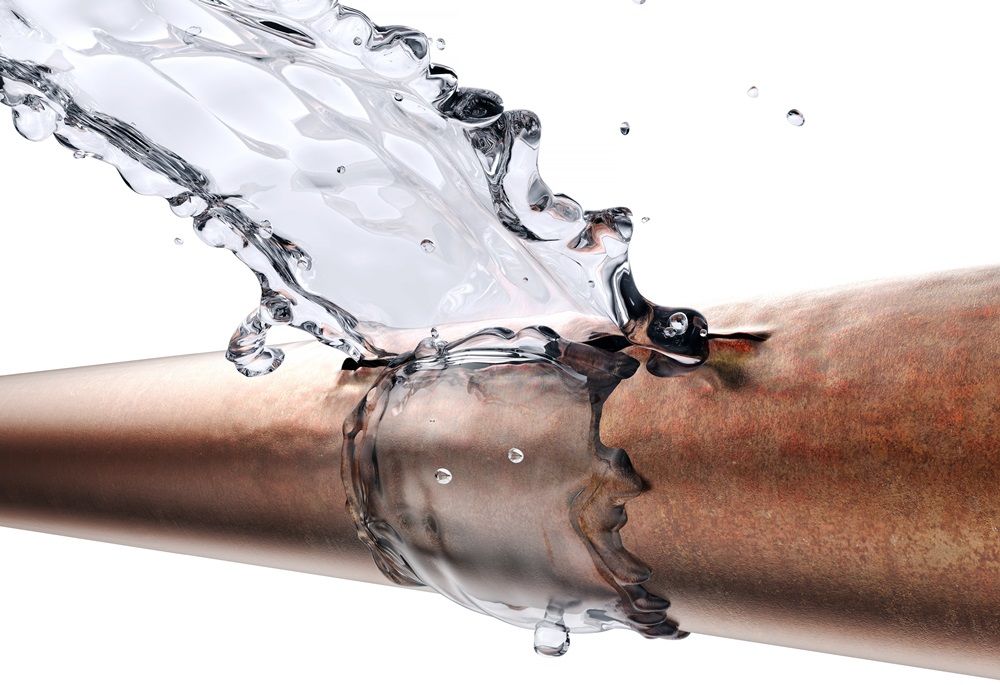
22/05/2020
Burst pipes: causes and prevention
If a pipe ruptures in your home or business, it can cause extensive water damage. Here’s a look at why a pipe might burst and what you can do to prevent this type of plumbing emergency.
What can cause a pipe to burst?
A pipe will burst if too much pressure is exerted on it from the inside. Alternatively, a pipe can also rupture if the metal is too weak. There are four main reasons why a pipe might be vulnerable to bursting.
Cold temperatures
Water expands when it freezes, which causes ice to scoop against the interior of the pipe. This buildup of pressure will eventually cause your pipes to break open. Often, a rupture will occur at a weak joint, but it can happen anywhere along the pipe if there’s enough pressure.
Moving pipes
If your pipes aren’t properly secured with saddle clamps or snap-in clips, they’re likely to shake when water flows through them. In addition to a rattling sound, this will eventually cause the pipe joints to weaken and break.
High water pressure
If the water pressure in a building is consistently high, it puts a lot of strain on the entire plumbing system. It causes pipes to wear out faster and can damage faucets and toilets. A sudden increase in water pressure can also rupture weakened pipes.
Corrosion
Pipes don’t last forever, but there are several reasons why a pipe might wear out prematurely, including a pH imbalance or frequent use of chemical drain cleaners. Once the protective coating inside your pipes has eroded, the metal is more susceptible to rust.
Luckily, vulnerable pipes can often be identified before they burst, and there are several preventive or reparative steps you can take.
How can burst pipes be prevented?
The most common cause of a burst pipe is sub-zero temperatures. Here are a few ways to prevent frozen pipes.
- Leave faucets open. Keep water moving through your interior plumbing by leaving one or two faucets slightly open in the kitchen and bathrooms (never try this technique with exterior faucets).
- Insulate pipes. Wrap pipes in foam sleeves if they’re located near an exterior wall or in an unheated area of your home.
- Open cabinet doors. If your kitchen or bathroom sink is on an exterior wall, make sure warm air can circulate in the cabinets.
- Drain exterior pipes. In the fall, close the shut-off valves for all exterior faucets and leave the faucets open. Additionally, all outdoor pipes, including those for your pool or sprinkler system, should be completely drained before winter.
Additionally, you should hire a professional to secure your pipes, install a pressure reducing valve or replace corroded pipes if necessary.
Plumbing services in Vancouver
The licensed plumbers at Hillcrest Plumbing and Heating Ltd. can help you keep your home or commercial property safe from burst pipes. We also offer emergency plumbing services to minimize water damage and make necessary repairs if a pipe ruptures. To schedule an appointment with a plumber in Vancouver, Richmond or New Westminster, contact us today.


